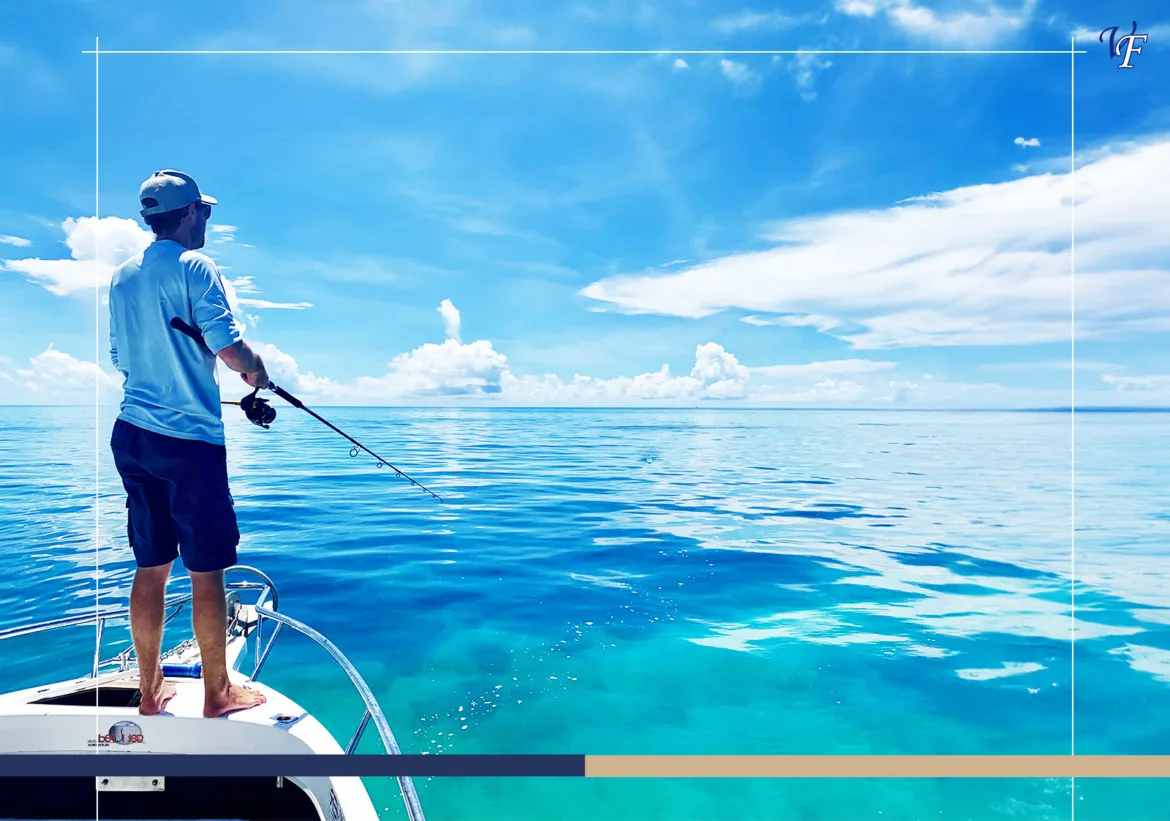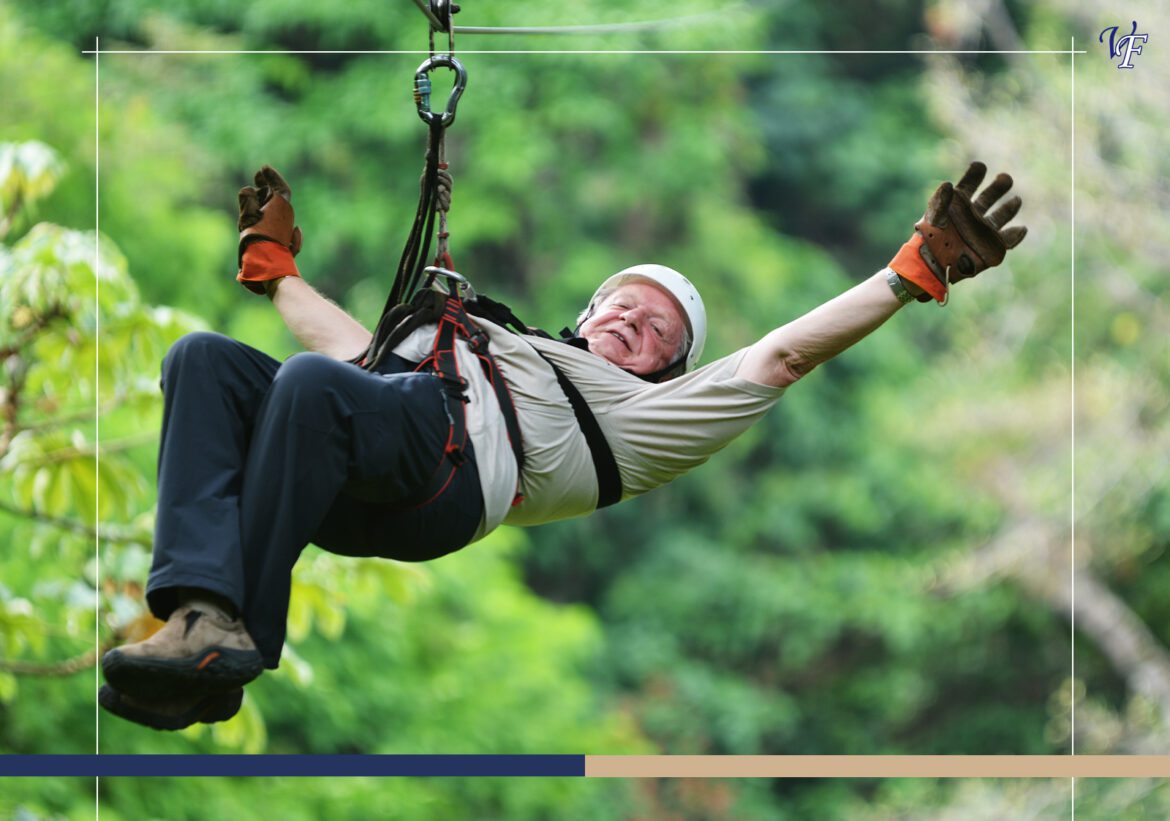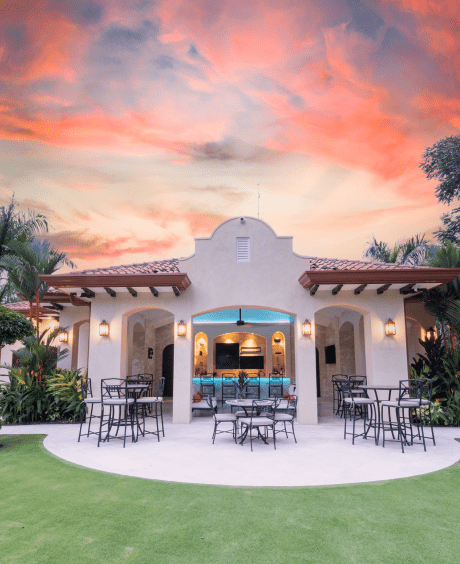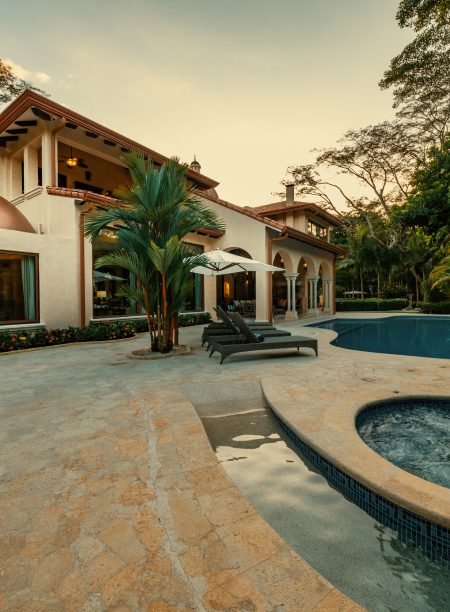Picture yourself on the shores of Costa Rica, where lush jungles whisper secrets to pristine beaches and the ocean shimmers like liquid sapphire. It’s a natural wonderland that calls to the hearts of anglers worldwide.
Sportfishing here is a sensation, a captivating dance with nature’s finest. But as we bask in the excitement of the chase, we also shoulder a profound responsibility – safeguarding the ocean that grants us these unforgettable moments.
Our journey begins right here, where waves meet the sand and dreams meet the sea. This blog is your guide to the world of sportfishing in Costa Rica, where we’ll uncover the secrets of responsible angling. From the rules to eco-friendly gear choices, we’re your companions on this quest to enjoy this pastime while being good stewards of the environment.
So, let’s dive in together with these sportfishing tips, not just in search of the catch of the day but in a quest for sustainable and responsible sportfishing, maintaining a harmonious relationship with the marine wonders of Costa Rica.
The Importance of Sustainable Sportfishing
The allure of sportfishing in Costa Rica is undeniable, with its stunning landscapes and abundant marine life drawing enthusiasts from around the globe. Yet, beneath these azure waters lies a fragile, intricately interconnected world where every creature plays a vital role. This is where the significance of sustainable sportfishing comes into focus, serving as the guardian of marine ecosystems.
Here’s why it matters:
- Preserving Marine Ecosystems: Sustainable sportfishing means preserving marine ecosystems. These ecosystems are delicate networks of life where each species has a role to play. By adopting sustainable practices, we protect the biodiversity that makes Costa Rica’s waters captivating.
- Balancing the Scales: Nature thrives on balance, and the oceans are no exception. Sustainable sportfishing ensures that we don’t upset this delicate equilibrium. By targeting certain species responsibly and releasing others, we contribute to the overall health of marine populations.
- Protecting Future Generations: Responsible sportfishing is an investment in the future. It ensures that our children and grandchildren will have the opportunity to witness the wonders of Costa Rica’s marine life. It’s our way of passing down a legacy of conservation.
- Economic Sustainability: Costa Rica’s economy benefits significantly from sportfishing tourism. Irresponsible practices can jeopardize this industry. By choosing sustainable methods, we ensure the longevity of this vital economic contributor.
- Global Impact: Our actions in waters ripple across the globe. By practicing sustainable sportfishing here, we set an example for responsible angling worldwide. Our choices affect not only local ecosystems but also contribute to the global conservation of oceans.
In essence, sustainable sportfishing is our commitment to preserving the breathtaking marine life of Costa Rica for future generations and ensuring that the delicate balance of this underwater world remains intact. It’s a responsibility that every angler should embrace while casting their line into the shimmering depths.
Regulations and Guidelines
Understanding and adhering to sportfishing regulations is paramount. These laws are in place to protect fish populations and ensure fair and responsible angling. Violating these regulations can lead to hefty fines, so staying informed is crucial. Let’s dive into the details:
- Fishing License: Secure a valid fishing license before casting your line. Typically, your chosen tour operator can help with this.
- Species Limits: Familiarize yourself with catch limits for various species. Overfishing can harm fragile ecosystems.
- Protected Zones: Respect marine reserves and no-fishing zones, as they provide refuge for marine life.
- Seasonal Closures: Be aware of species-specific fishing season closures, preventing fishing during critical breeding times.
- Gear Restrictions: Understand gear regulations to avoid equipment that could harm the environment.
Here are some sustainable sportfishing tips to keep in mind for an enjoyable experience.
Tip 1: Selecting Responsible Tour Operators
Choosing tour operators committed to sustainable practices is essential when planning your sportfishing adventure. Look for operators with eco-certifications and positive reviews highlighting their dedication to preserving the environment. Here’s how to make a responsible choice:
- Eco-Stewardship: Responsible operators prioritize eco-stewardship, minimizing the impact of your fishing on the environment.
- Conservation Efforts: Many responsible operators actively engage in conservation, such as coral reef restoration and wildlife protection.
- Local Communities: Supporting local communities is a hallmark of responsible operators, contributing to the social fabric of coastal regions.
- Sustainable Practices: They adopt sustainable practices like catch and release to minimize harm to fish populations.
- Education: Responsible operators often educate anglers about the importance of conservation and sustainability.
Tips for Identifying Responsible Operators:
- Eco-Certifications: Seek operators with recognized eco-certifications like the Costa Rican Blue Flag, signifying their commitment to sustainability.
- Positive Customer Reviews: Customer feedback often highlights responsible practices and eco-friendly initiatives.
- Direct Communication: Don’t hesitate to inquire about their practices directly. Gauge their commitment to responsible angling.
- Community Engagement: Responsible operators actively participate in local conservation and community initiatives.
- Transparency: They provide clear information about their fishing practices and their impact.
By choosing a responsible tour operator, you not only enhance your sportfishing experience but also become an active participant in the conservation of Costa Rica’s precious marine environments.
Tip 2: Catch and Release Practices
Catch and release is more than just a practice; it’s a philosophy of sustainable sportfishing. Knowing how to handle fish properly is paramount to ensure the well-being of fish and the health of marine ecosystems. Let’s dive into the essentials:
- Use Barbless Hooks: Barbless hooks are easier to remove, reducing injury to the fish.
- Handle with Care: Wet your hands before handling fish to protect their delicate scales and skin.
- Minimize Air Exposure: Keep fish in the water as much as possible to avoid stress and oxygen depletion.
- Proper Tools: Carry pliers or dehooking tools for quick and gentle hook removal.
- Practice Patience: Allow fish to fully revive before releasing them, ensuring they swim away energetically.
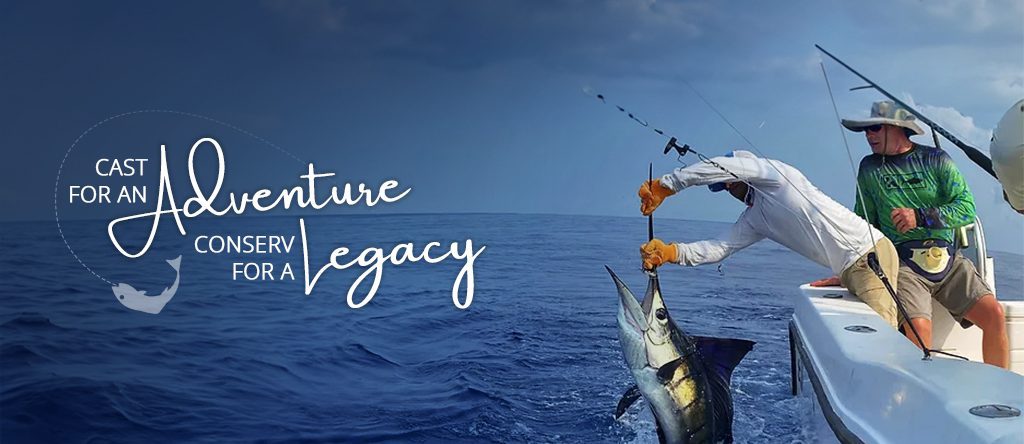
Tip 3: Responsible Bait and Lure Usage
The choice of bait and lures can impact local ecosystems. Understanding how non-native options can disrupt the balance and harm marine life is crucial. Let’s explore responsible bait and lure practices:
- Use Native Bait: Whenever possible, opt for native bait to minimize the risk of introducing invasive species.
- Choose Biodegradable Lures: Select biodegradable lures to reduce the environmental impact of lost or discarded gear.
- Research Local Regulations: Check local regulations to ensure your bait and lures comply with regional guidelines.
- Stay Informed: Educate yourself about local bait and lure recommendations to make responsible choices.
- Prioritize Sustainability: Make choices that prioritize the sustainability of marine ecosystems, ensuring a healthy environment for future generations.
Tip 4: Choosing Appropriate Fishing Gear
Not all fishing gear is environmentally friendly. Some can harm marine life and ecosystems. It’s essential to make responsible gear choices to minimize your impact on the environment:
- Lead-Free Weights: Opt for lead-free weights to prevent lead contamination in the water, which can harm fish and other marine life.
- Biodegradable Fishing Lines: Choose biodegradable fishing lines that break down naturally, reducing the risk of entanglement for marine animals.
- Non-Toxic Baits: Use non-toxic bait options to prevent harmful substances from leaching into the water.
- Circle Hooks: Circle hooks are designed to hook fish in the corner of the mouth, reducing injury and increasing their chances of survival.
Tip 5: Respect for Wildlife
Sustainable sportfishing dictates that marine wildlife must be respected, and this is a non-negotiable principle. While there are so many benefits of going on a sportfishing trip, your actions should never disrupt the natural behavior of these creatures. Here’s how to ensure harmony with the underwater world:
- Safe Distance: Maintain a safe and respectful distance from marine animals, refraining from chasing or approaching them too closely.
- Observe Quietly: Keep noise levels to a minimum to avoid startling or stressing marine life.
- No Feeding: Resist the urge to feed marine animals, as it can disrupt their natural foraging patterns and health.
- Avoid Nesting Areas: Be aware of nesting and breeding sites, steering clear to prevent disturbance.
- Litter-Free Zones: Ensure your fishing area remains litter-free to prevent harm to wildlife and their habitats.
Tip 6: Minimizing Waste and Pollution
Responsible sportfishing extends beyond catching and releasing fish. Proper waste disposal and minimizing pollution are essential. Here’s how to tread lightly on the environment:
- Trash Collection: Carry trash bags and collect all waste, including fishing lines, packaging, and food wrappers.
- Dispose Properly: Use designated waste disposal facilities or bring trash back to shore for appropriate disposal.
- Recycle When Possible: Separate recyclables and dispose of them responsibly.
- Line Recycling: Many areas have fishing line recycling bins. Use them to properly dispose of old fishing lines, preventing them from harming wildlife.
- Responsible Tackle Storage: Store tackle and gear securely to prevent items from falling overboard and becoming marine litter.
Tip 7: Educating Fellow Anglers
Spreading awareness about sustainable sportfishing is a powerful way to multiply the positive impact. By sharing your knowledge, you can inspire fellow anglers to adopt responsible practices:
- Lead by Example: Practice responsible sportfishing and be a role model for others.
- Share Experiences: Share your sustainable angling experiences with friends and fellow anglers, highlighting the beauty of eco-friendly practices.
- Online Communities: Engage in online fishing forums and communities to discuss sustainable practices and learn from others.
- Local Workshops: Support or organize local workshops on sustainable sportfishing to educate and inspire newcomers.
- Promote Catch and Release: Encourage fellow anglers to embrace catch and release practices to preserve fish populations.
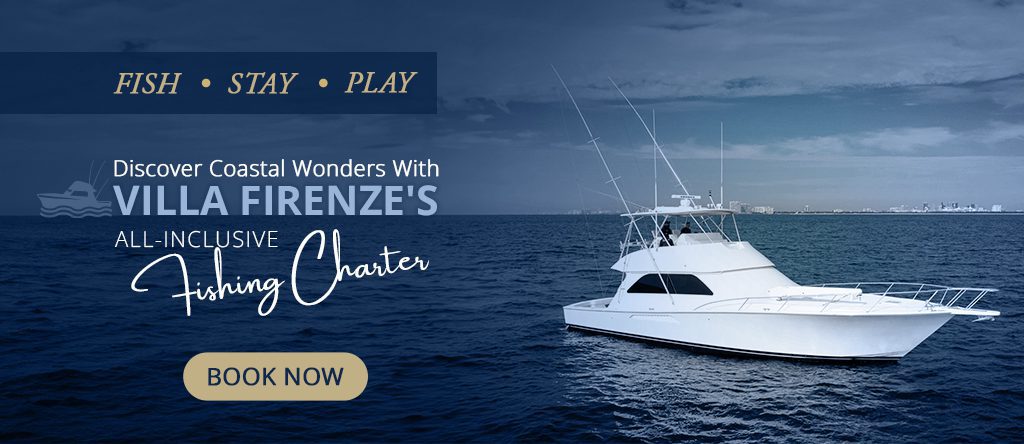
Conclusion:
In Costa Rica’s natural wonderland, we invite you to join us on a journey where sustainable sportfishing meets luxury and conservation. As responsible anglers, we hold the power to protect the thriving marine ecosystems of this magnificent destination.
For those seeking an unforgettable sportfishing adventure that blends luxury and sustainability, look no further than Villa Firenze. Nestled on the Pacific coast of Costa Rica, our exclusive luxury villa rental offers you an all-inclusive fishing charter experience. Here, you can embark on thrilling angling expeditions while enjoying the comforts of your private paradise. Let’s cast our lines into a future where the marine world thrives and every angler is a guardian of the deep.


